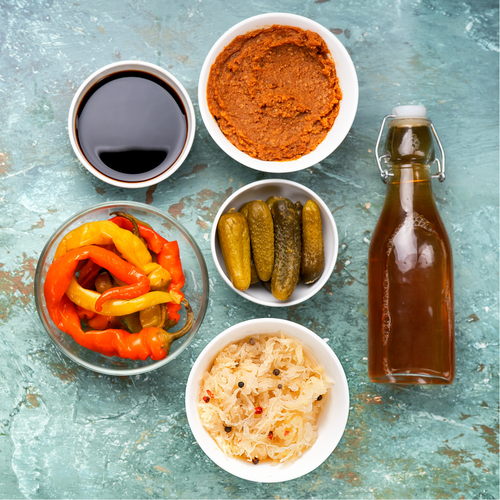The method that will surely remain the most effective, the least expensive and the least dangerous is to take care of one's body according to the principles of basic nutrition and hygiene, but the great forgotten thing, which can nevertheless prove to be of great use, is the intestinal microbiota.
With our current lifestyles, we are highly exposed to risk factors for dysbiosis: for many, the balance no longer reigns within the intestinal microbiota, and this can slow down your athletic performance! Indeed, recent studies have shown the influence of the microbiota on an athlete's abilities, but that's not all. There seems to be a symbiotic relationship between physical activity and the intestinal flora, since several studies highlight the positive influence of sport on the balance of the microbiota. We'll help you see things more clearly:
How does a healthy microbiota influence athletic performance?
The balance of the microbiota positively influences the athlete through numerous mechanisms:
- It promotes an antioxidant immune defense system that protects against oxidative damage caused by exercise and prevents tissue damage.
- It promotes the absorption of nutrients, allowing for their proper use. An unbalanced flora struggles more for its survival than it does for the extraction of nutrients.
- It reduces inflammation, which is a nuisance for athletes. Among other things, it reduces recovery capacity.
- It maximizes morale, mental strength, and motivation. The microbiota has a significant influence on mental health.
- It promotes intestinal comfort, essential for staying in shape during physical activity.
- It promotes restful sleep, essential for good recovery, thanks to better production of melatonin, among other things. Our intestinal flora controls the activity of several hormones affecting sleep quality, such as cortisol, serotonin and GABA.
- It induces better water use, and therefore better hydration. Indeed, a healthy microbiota helps maintain the integrity of the intestinal mucosa, which is essential for good hydration.
- it increases energy, thanks to multiple mechanisms (better breakdown of lactic acid, increase in ATP molecules providing energy, regulation of metabolism, etc.).
How does physical activity promote a healthy and balanced microbiota?
Several studies have focused on this topic. The results that emerge seem not only to highlight mechanisms inducing changes in the composition of the microbiota, via muscle contraction and oxygen consumption, but also differences in composition depending on the type of sport.
For example, an Irish study found a decrease in inflammatory markers and an increase in bacterial diversity in healthy, active individuals compared to overweight individuals.
Additionally, regular, moderate activity appears to be more effective in achieving results, compared to occasional, very intense/prolonged activity.
Sources:
[1] Petersen, LM, Bautista, EJ, Nguyen, H., Hanson, BM, Chen, L., Lek, SH, Sodergren, E., & Weinstock, GM (2017). Community characteristics of the gut microbiomes of competitive cyclists. Microbiome, 5(1), 98. https://doi.org/10.1186/s40168-017-0320-4
[2] The Physiological Society. Exercise might improve health by increasing gut bacterial diversity [online]. ScienceDaily. February 15, 2019. Available: www.sciencedaily.com/releases/2019/02/190215082429.htm
[3] Clarke, SF, Murphy, EF, O'Sullivan, O., Lucey, AJ, Humphreys, M., Hogan, A., Hayes, P., O'Reilly, M., Jeffery, IB, Wood-Martin, R., et al. (2014). Exercise and associated dietary extremes impact on gut microbial diversity. Gut 63, 1913–1920.
















